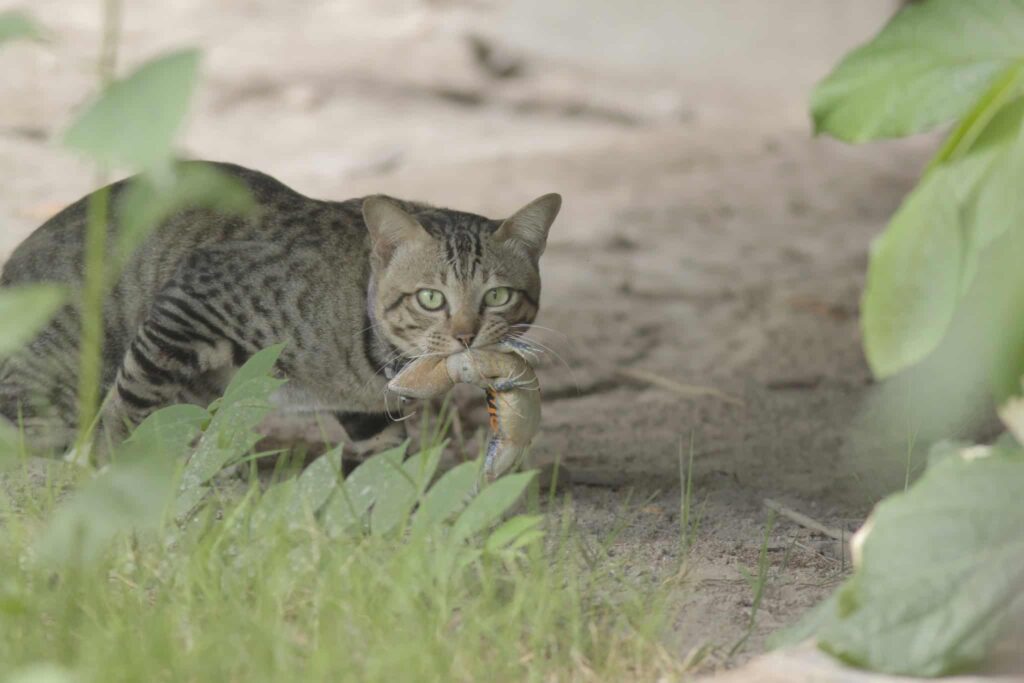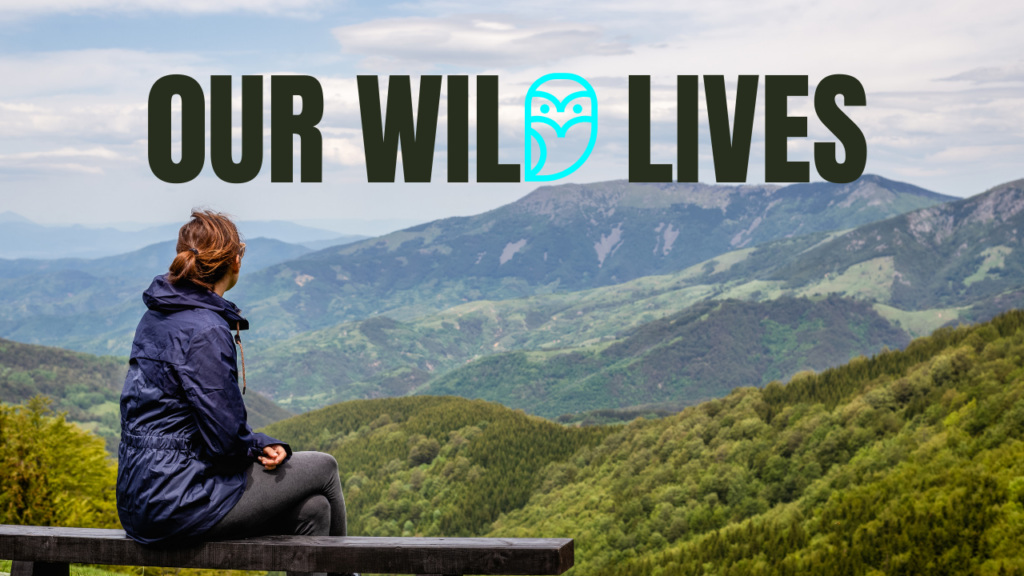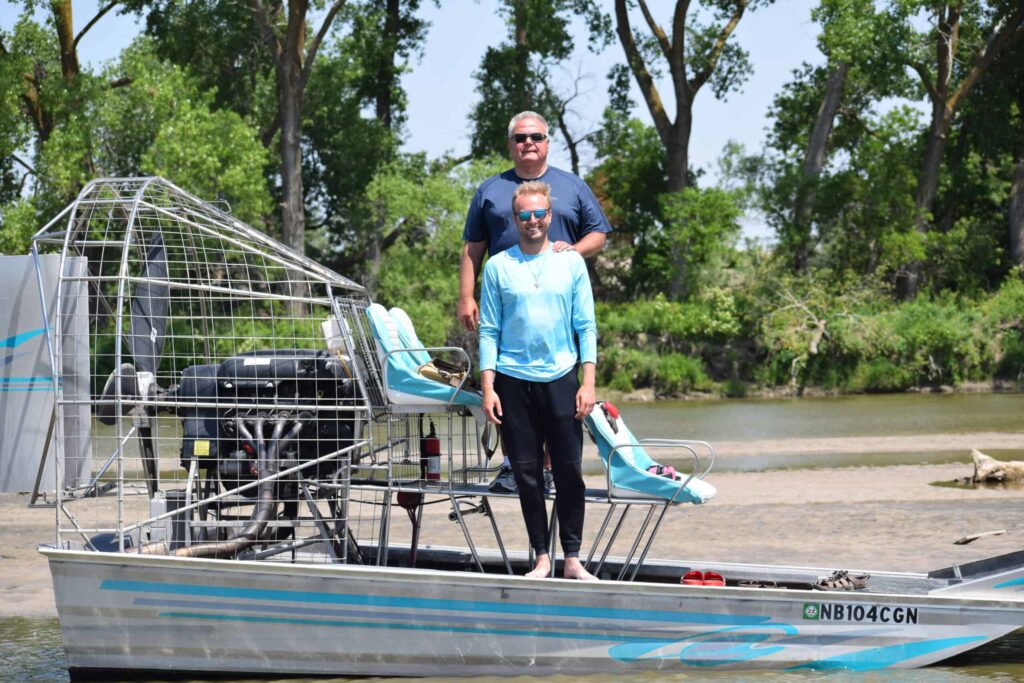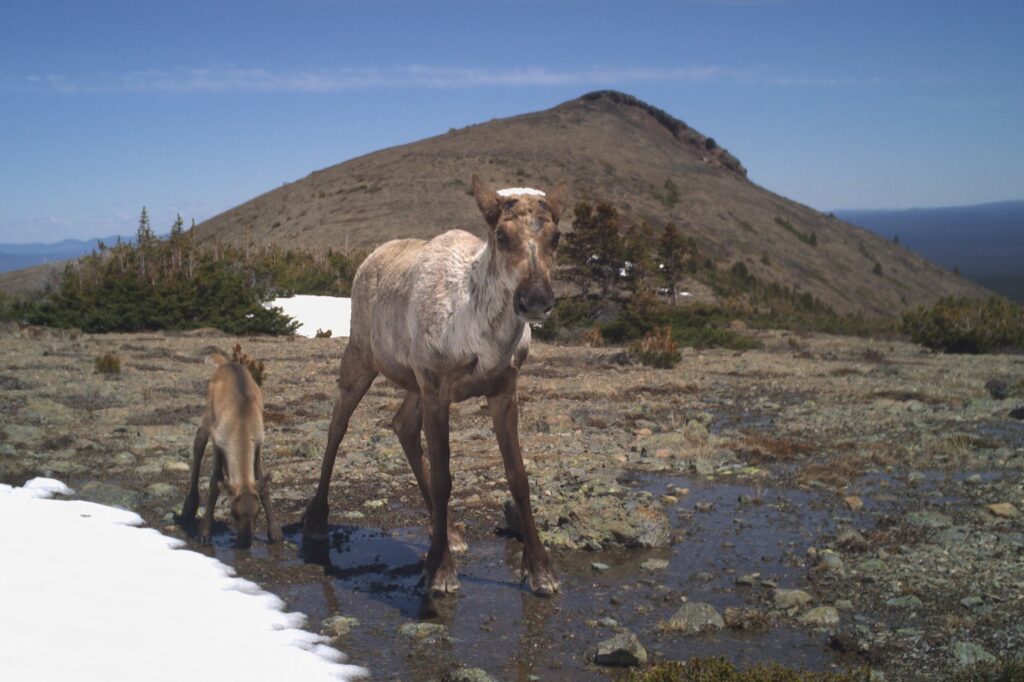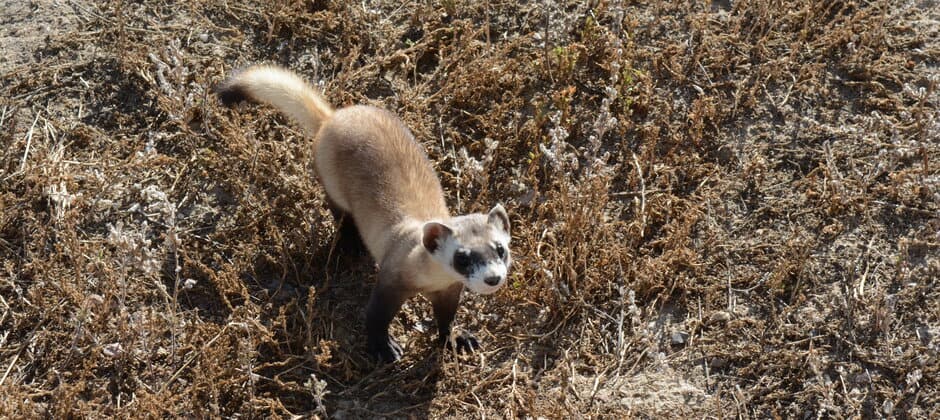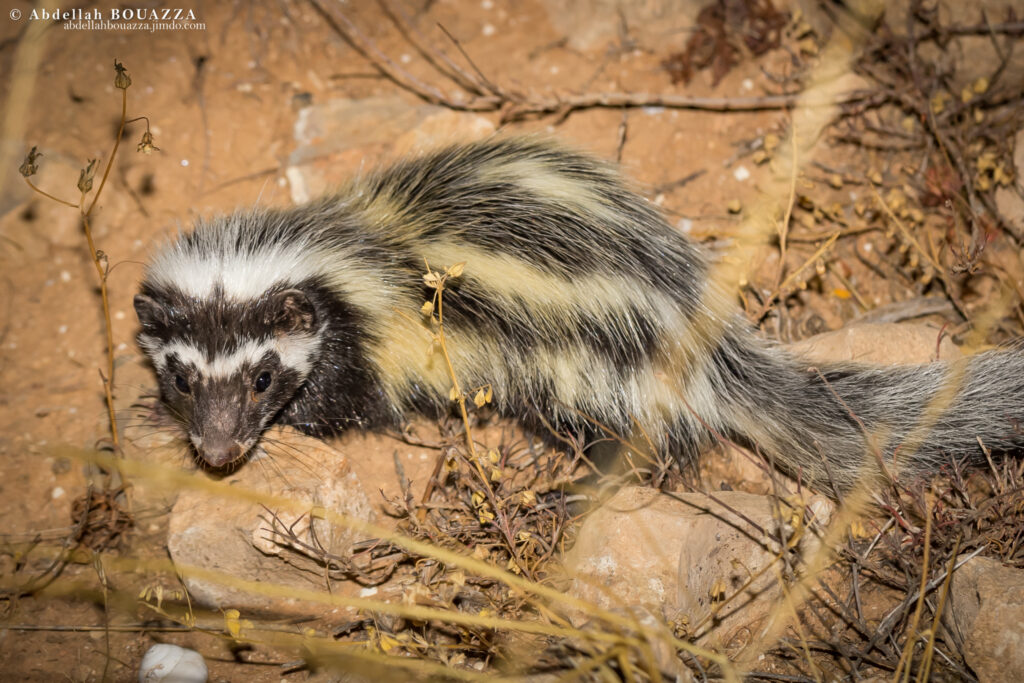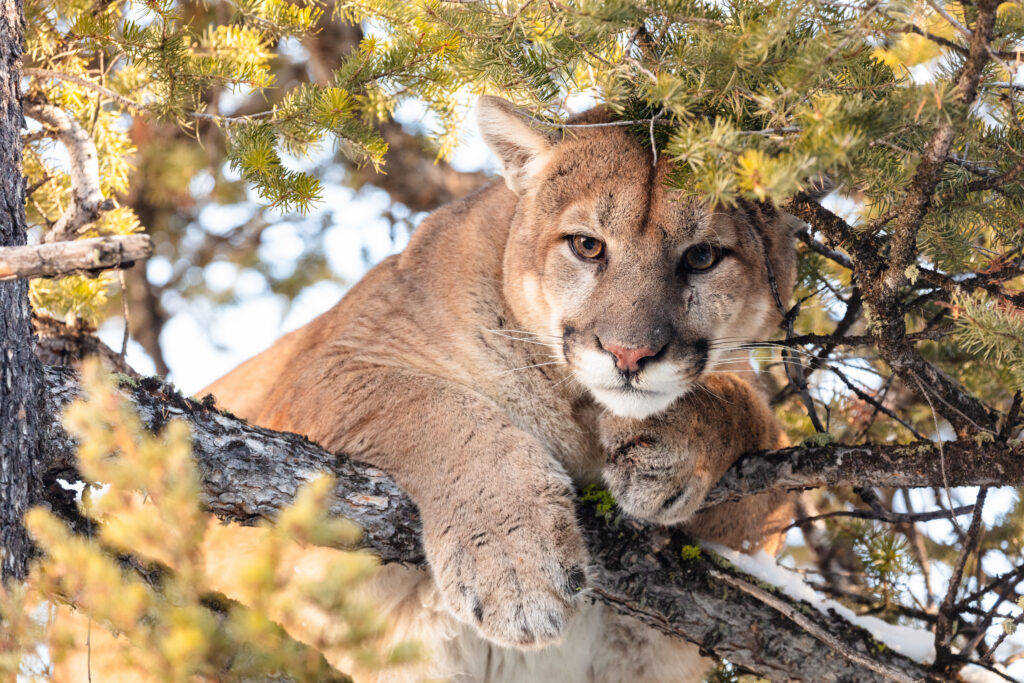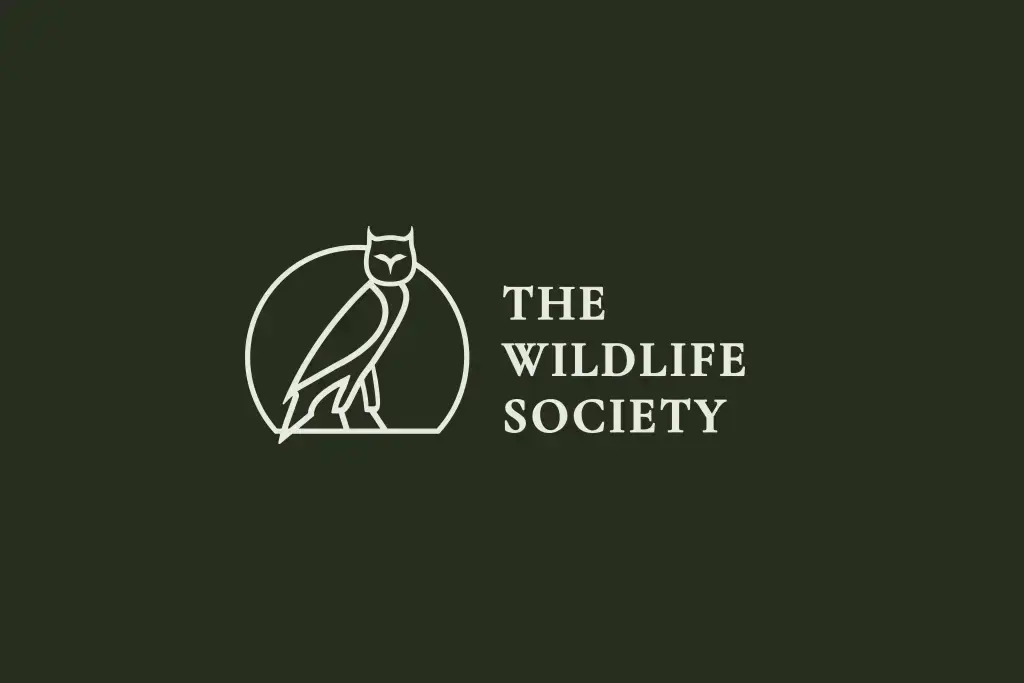Two-thirds of captive-bred black-footed ferrets have been vaccinated for the novel coronavirus, and not a single one of the endangered mustelids is known so far to have contracted the disease.
Researchers are concerned that black-footed ferrets (Mustela nigripes) may be able to contract SARS-CoV-2, the virus that causes COVID-19 in humans, since close relatives like European mink (Mustela lutreola) and domestic ferrets (Mustela putorius furo) can be infected.
After finding similar species can be infected, researchers quickly began to increase safety protocols at zoos and the U.S. Fish and Wildlife Service’s National Black-footed Ferret Conservation Center in Colorado, the main source of the captive-breeding and release program for the federally endangered species.
“They have done a magnificent job in keeping those animals safe,” said Tonie Rocke, a research scientist with the USGS National Wildlife Health Center who works with ferrets.
But U.S. Geological Survey researchers who also study black-footed ferrets had learned about recent studies in mice and hamsters, demonstrating safety and efficacy of vaccination against COVID-19 using purified viral protein. They decided to try something similar on a handful of ferrets this past May and June.
The vaccine used in ferrets is different — it’s a simplified version of the Moderna or Pfizer vaccinations now being used for humans — and it’s based on a similar protein, said Rocke.
Under the authority of the USFWS, the scientists could test the solution on a handful of ferrets in a process that is much quicker than the extensive approvals needed for commercial vaccination for humans like the Pfizer or Moderna inoculations.
The isolated ferrets that had received this trial vaccination produced antibodies against the coronavirus.
“We showed that this protein was immunogenic,” Rocke said, meaning it provoked the ferrets’ immune systems to respond.
Luckily, not a single black-footed ferret is known to have contracted the disease. It’s still not clear whether they even can. But as more news began to circulate about mink contracting the disease, the researchers decided to inoculate more black-footed ferrets out of an abundance of caution, vaccinating two-thirds of the animals at the Colorado ferret center in August.
While no adverse effects related to the ferret inoculation have been discovered, the researchers still left a third unvaccinated in case any long-term impacts cropped up.
The vaccinated ferrets currently still maintain coronavirus antibodies. But those antibodies are showing signs of decreasing over time. Rocke said it’s likely they might need a booster vaccine in the future.
Further trials to test if serum from vaccinated ferrets can protect mice from the virus will help determine whether the simple protein vaccine used in ferrets can actually protect them from disease. Researchers won’t experimentally infect ferrets with the coronavirus because of their low numbers and endangered status.
In the meantime, black-footed ferret conservation continues, at a healthy social distance. Managers at the ferret center in Colorado released a batch of ferrets in 2020 as part of their annual reintroduction.
Article by Joshua Rapp Learn